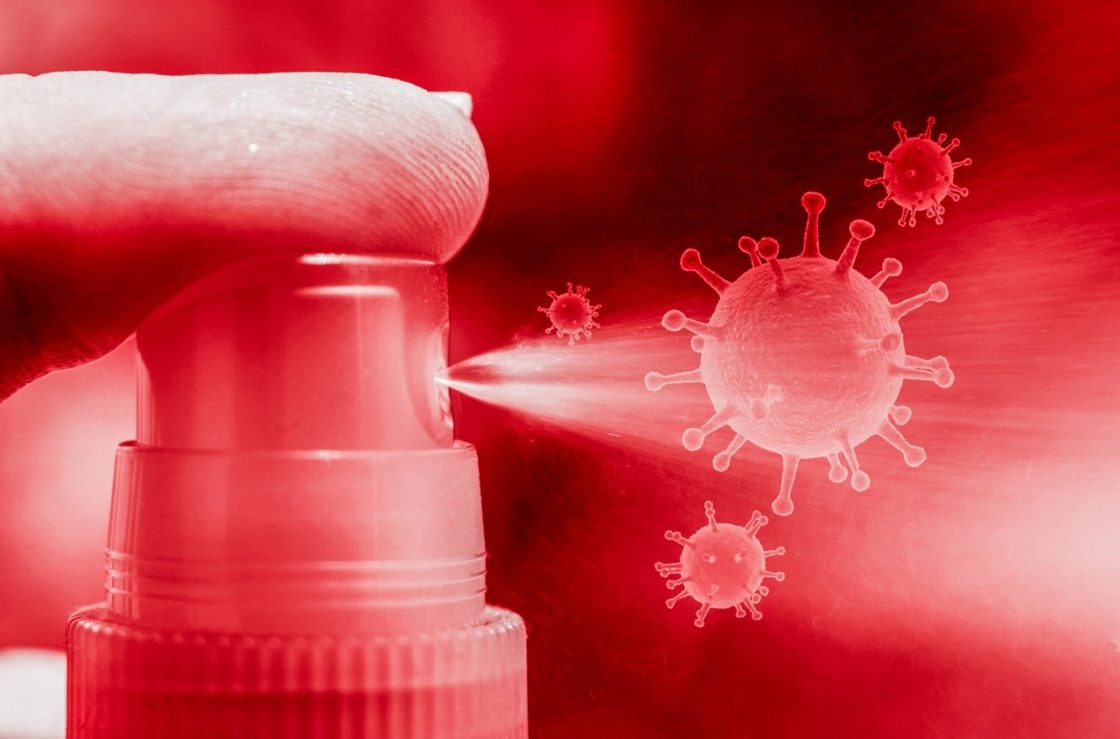Spirits distillers around the world are supporting the fight against COVID-19 by switching from production of spirits to alcohol-based sanitizer. How come we haven’t heard of Japanese distilleries doing the same?
If you’re wondering when you can get your hands on a bottle of Yamazaki hand sanitizer, I have bad news. It’s unlikely to happen any time soon.Tokyo Craft Liqueur has a verify informative blog post that addresses this very question.
Legal hurdles
Japanese distilleries are granted licenses for specific categories of product going out the door. This means that you don’t simply have a distillery in Japan. You have a whisky distillery, you have a shochu distillery, or maybe a shochu/whisky/spirits distillery.
If, for example, you run a whisky distillery, the bottles leaving your facility have to be whisky (under the Japanese defintion, anyway). The bottles can’t be “hand sanitizer,” since that’s classified as a topical medication by Japan’s Ministry of Health, Labour and Welfare. If you are only a whisky distillery, you can’t make alcohol for medicinal purposes.
Even so. It’s probably not impossible to allow a temporary relaxation of the law to permit distilleries to make alcohol-based sanitizer instead booze. That’s exactly what happened in America. Thanks to quick action by the Alcohol and Tobacco Tax and Trade Bureau, there are now over 500 distilleries in the US making sanitizer.
Japan’s distilleries are overseen by the National Tax Agency. But we haven’t heard anything from them about potentially relaxing these rules.
Money trouble
Let’s say authorities in Japan don’t do squat. It is still (legally) possible for a determined distiller licensed to make spirits that have an abv of 60% or more. In fact, it already happens quite often for single cask whiskies, new make, absinthe, and more. Sure, they couldn’t label it “sanitizer,” but it should still be effective at disinfecting things.
Here, cost becomes an issue. Tokyo Craft Liqueur estimates this bottle would end up costing 2-4x more than standard hand sanitizer, given a tax of about 650-700 yen per 1L due to the abv. That’s before materials, labor, and bottle costs. On top of that, you’re looking at decreased sales of your regular product, assuming sanitizer production impacts your capacity.
Capacity and scale
Speaking of capacity. To make a respectable quantity of sanitizer, you’ll need a continuous still. These aren’t extremely common in Japan — both malt whisky makers and honkaku shochu makers use pot stills for creating their spirits. Grain/continuous stills of course do exist in Japan. But many of Japan’s distilleries are tiny, with just one or two stills.
You can’t just distill anything though. What do you make ethanol-based sanitizer from? Unless you’re a whisky distillery, or big enough for economies of scale to come into play, you will probably begin with grain neutral spirit (GNS).
If you want to make it from scratch, things get more complex, since you’ll need to ferment your raw materials. To feed your continuous still, you want a lot of wash, therefore requiring a massive fermentation tank. GNS makers, by the way, are only allowed to sell GNS to licensed breweries/distilleries.
Tokyo Craft Liqueur estimates that with their single still, they could make about 36 500ml bottles per day. And that’s beginning with GNS, diverting their entire inventory of the stuff to make sanitizer. If they had to start from the raw materials, that number drops to a mere 10 bottles per day.
Logistics issues
Pretend we have a distillery that’s feeling very generous. They have the necessary license, their pockets are deep enough to be able to eat the cost, and they don’t care about the impact to capacity. They just want to help, even if it’s only a handful of bottles per day.
In Japan we run into some more logistical trouble. Spirits with abv of 67% or over are considered Hazard Materials Category IV, meaning many domestic carriers simply won’t handle them.
How about it, Japan?
These hurdles might seem insurmountable, but let’s be serious. This is the coronavirus and there are potentially human lives at stake. Looking again to the US, here is how makers have addressed each:
–Legal: Federal (FDA and TTB), state, and local authorities have allowed makers to produce sanitizer by relaxing certain parts of the law. Seems they were pushed to do so by DISCUS.
–Cost: This is entirely up to the distillery’s management, with Tito’s for example eating the entire cost. Other distilleries are taking donations to cover costs.
–Capacity: With the US in a potentially more dire situation than Japan, we’re seeing many distilleries devoting 100% of their capabilities to making sanitizer. Even at the expense of their regular spirits.
–Logistics: Due to high demand, this also seems to have solved itself. Many distilleries are simply giving sanitizer to anyone who shows up at their door!
Hi there! I created and run nomunication.jp. I’ve lived in Tokyo since 2008, and I am a certified Shochu Kikisake-shi/Shochu Sommelier (焼酎唎酒師), Cocktail Professor (カクテル検定1級), and I hold Whisky Kentei Levels 3 and JW (ウイスキー検定3級・JW級). I also sit on the Executive Committees for the Tokyo Whisky & Spirits Competition and Japanese Whisky Day. Click here for more details about me and this site. Kampai!


Very sad. It’s an outdated and cumbersome system. I’ve been living here in Japan for nearly two years and looking forward to leaving now than ever before. Great whisky if you can get it at a decent price. Keep up the good work.
Great article. Does show the difficulties of doing business in Japan. Flexibility is not something one finds here. Hope that changes at least for these difficult times.